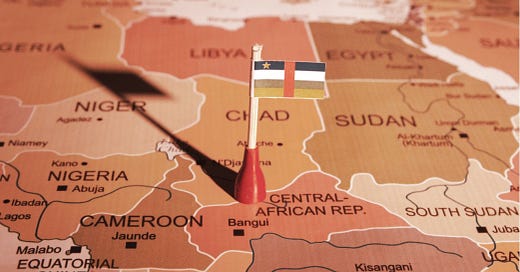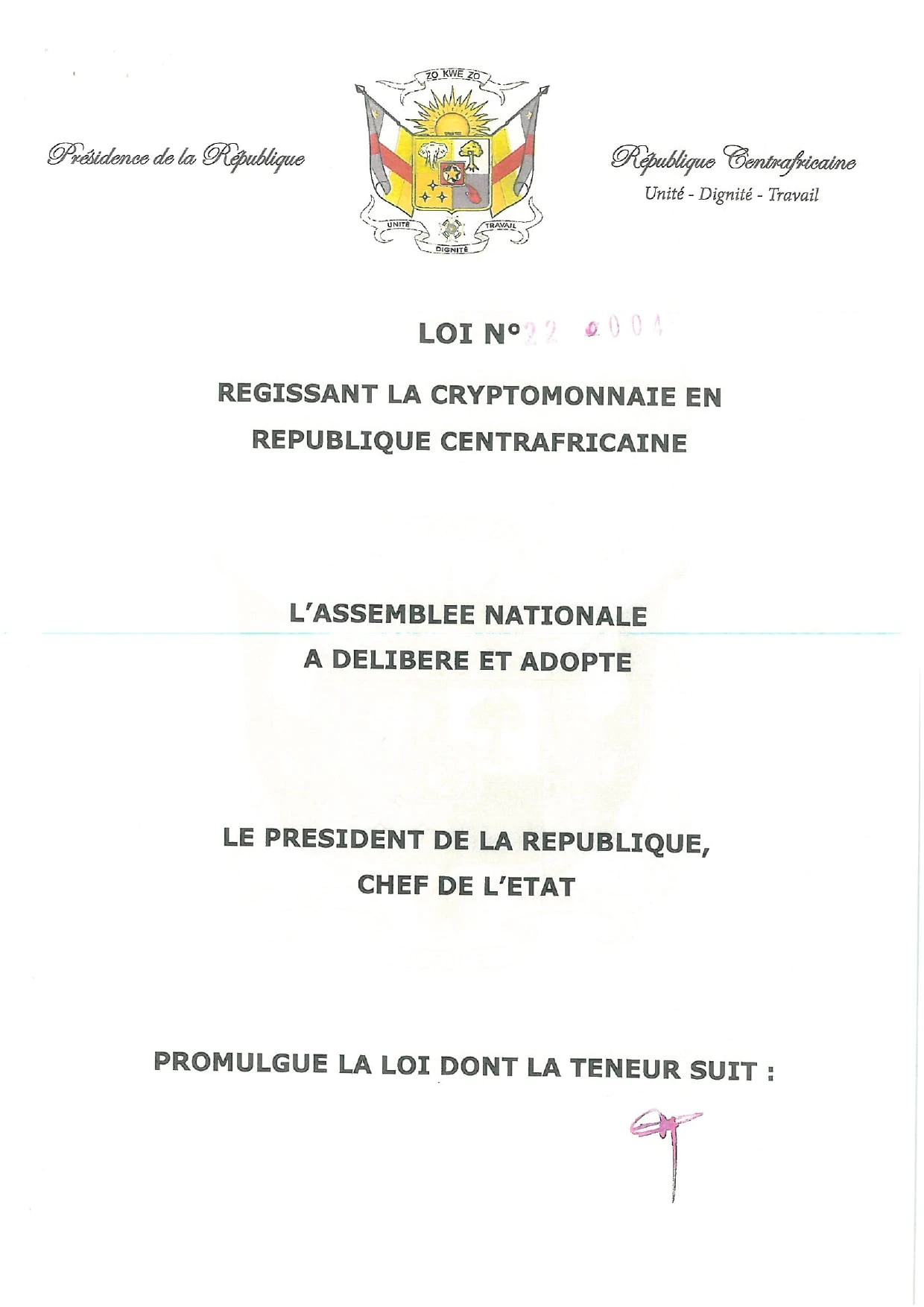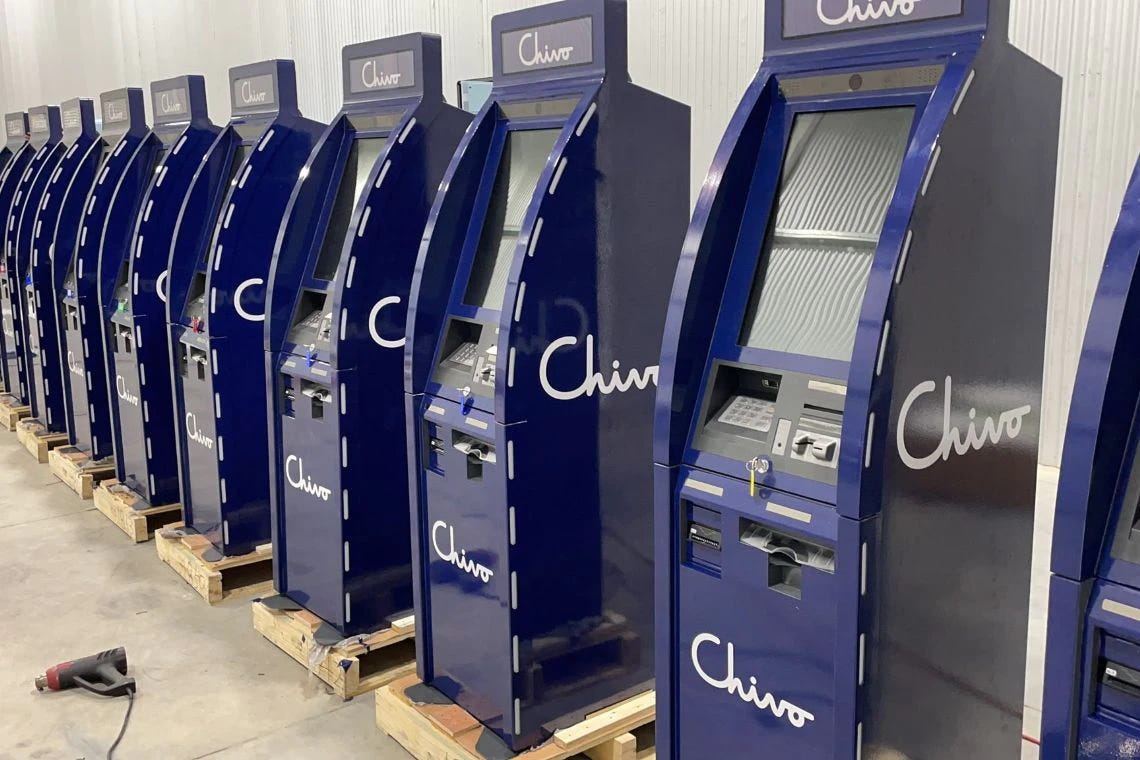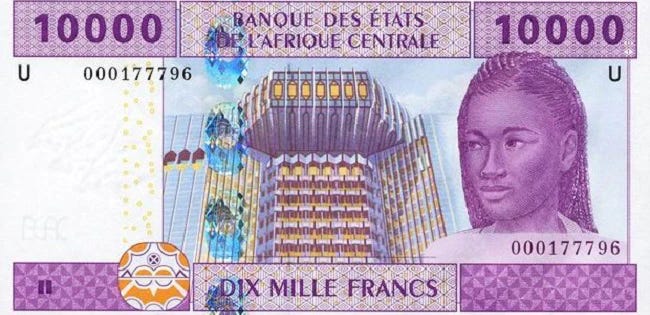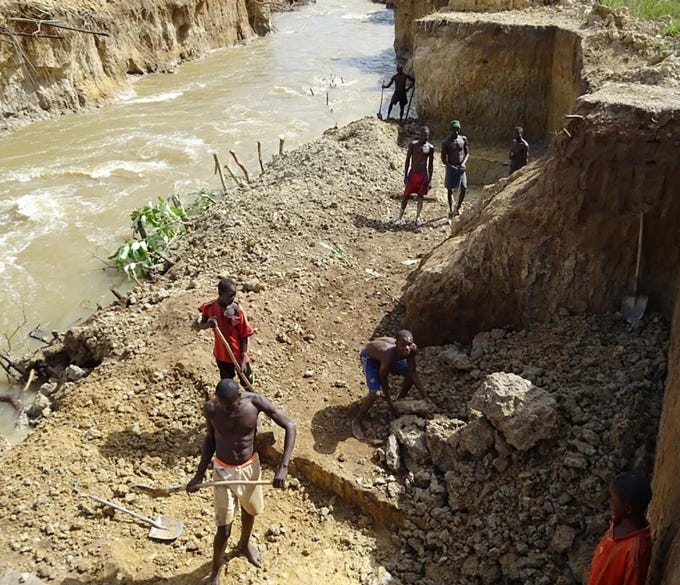Stop #28 - Bitcoin and Central Africa: lights and shadows
The Central African Republic is the second state in the world to declare Bitcoin legal tender. What does the law say? What is the situation in the country? What we know and what we don't know
Among clues and rumors, it had already been talked about for several weeks, but on Tuesday, April 26, the news was made official: the Central African Republic is the first African state - the second in the world after El Salvador - to adopt bitcoin as legal tender.
This was announced in a press release signed by the President of the Republic Faustin-Archange Touadéra in which we read the following:
The adoption of Bitcoin as an official currency represents a decisive step towards opening up new opportunities for our country. [...] The Central African Republic is not only the first country in Africa to adopt Bitcoin as a reference currency, but also the first in the world to unanimously adopt the bill regulating cryptocurrency.
The news came as a surprise to the Bitcoin community because prior to the release, Finance Minister Hervé Ndoba had denied that the country would replicate El Salvador's initiative by making bitcoin legal tender, explaining instead that the direction would be to create a legal framework to regulate the use of cryptocurrencies.
However, the bill passed by the National Assembly on April 22 - yes, the news was made public only four days later - is clear on the matter: the "legal tender "1 of bitcoin is a reality.
The Bill
The Presidency of the Republic has published on Facebook, through screenshots, the 5 pages that make up the bill: let's see the most significant articles.
Article 1: "The purpose of this law is to regulate all transactions related to cryptocurrencies in the Central African Republic, without restrictions, [...] carried out by natural or legal persons, public or private. Bitcoin will be considered as the reference currency".
Article 5: "The exchange rate between cryptocurrencies and the currency used in the Central African Republic (the CFA franc, further discussed below) is freely determined by the market".
Article 8: "Cryptocurrency exchanges are not subject to taxation".
Article 10: "Any economic actor is required to accept cryptocurrencies as a form of payment when they are offered for the purchase or sale of a good or service".
Article 11: "Without prejudice to private sector initiatives, the State shall provide alternatives that allow the user to conduct cryptocurrency transactions and have automatic and instant convertibility to the currency used in the Central African Republic".
Article 13: "A national agency for the regulation of electronic transactions, abbreviated as NAET, is created".
Article 14: "The Agency shall be responsible for the control and management of all ATMs installed by the State in the national territory".
Implications of the articles
While the statement refers to bitcoin as "official currency," not specifying well what the legislative status of the cryptocurrency is, Article 10 makes it clear: all businesses are required to accept bitcoin and cryptocurrencies (but which others? It is not known) as a form of payment. It is therefore a true legal tender, as with bitcoin in El Salvador.
It seems that cryptocurrency exchanges even want to be incentivized, because they are exempt from taxation (Art. 8).
The government commits to providing services that allow cryptocurrency transactions whose countervalue is immediately converted into CFA francs, while protecting private initiative (Art. 11): this suggests that, while allowing citizens to make payments through private apps and wallets, the executive will commission the development of a wallet - or similar service - controlled by the state as in the case of Chivo in El Salvador2.
It will be interesting to see if the state service will allow payments also without the instant conversion into local currency, thus allowing to save in cryptocurrencies or, even better, only in bitcoin: developing wallets able to support multiple tokens is not at all simple and implies a high risk of bugs and malfunctions due to the complexity of the programming. But, having said that, we still don't know which cryptocurrencies the law refers to (bitcoin is the only one clearly mentioned) and timing and modalities of the initiative have not been made public yet.
NAET, a new agency dedicated to the regulation of "electronic transactions", will then be responsible for the installation of state ATMs in the country (Art. 13 and 14). Again, the details of the operation are not known.
Last but not least, Article 5. For us it may seem trivial that an exchange rate is determined by the free market but for the Central African Republic it is not. The reason for this is directly linked to the local currency, the CFA franc, whose value is pegged to the euro (therefore not determined by the free market) and this characteristic has caused the country many problems (more on this later).
What we know about Central African Republic
According to the United Nations, the Central African Republic is the second least developed country in the world. Of the total of 5 million inhabitants, 2.5 million live below the absolute poverty line and - as documented by journalist Clément Di Roma, who has lived there for more than a year - many of these struggle to find food on a daily basis (per capita GDP is only 337 dollars). Internet penetration is very low: only 11.4% of the population has access.
The country has been in civil war for years and in recent months clashes have increased. Today, the Central African Armed Forces (CAAF), supported by Russian militias (the so-called Wagner Group) and Rwandans, fight in the streets against the Coalition of Patriots for Change (CPC): the result is that 70% of the national territory is controlled by armed groups.
As if that were not enough, the Central African Republic does not have a sovereign currency.
The monetary structure of Central Africa
As mentioned, the legal tender in Central Africa is the CFA franc. The acronym stands for African Financial Community because the currency is also used by other neighboring countries. Specifically, the CFA franc was created with the Bretton Woods agreements of 1945 - where the Gold Exchange Standard was also established - and was initially tied to the value of the French franc (today to that of the euro) in a sort of legacy of French colonialism3.
A particularity of the CFA franc is that it is used by two different economic communities, dependent on two different central banks. In fact, the Central African Republic is part of the Economic and Monetary Community of Central Africa (together with Cameroon, Republic of the Congo, Gabon, Equatorial Guinea and Chad) and their CFA franc, whose initials are XAF, is issued by the Bank of Central African States.
However, there is also the West African Economic and Monetary Union4 , whose CFA franc is indicated as XOF and it is issued by the Central Bank of West African States.
Although the XAF and XOF francs have the same value and are both known as the CFA franc, they are not interchangeable and, in fact, are issued by two different central banks.
French Monetary Colonialism
The two francs, however, do not only have the name in common. Until 2019, they also shared a third wheel: the French central bank. Originally, it was the transalpine central bank that ensured the link and convertibility of the CFA franc with the French franc. With the changeover to the euro, this responsibility did not pass to the ECB but remained in the hands of the Bank of France.
The fixed exchange rate and the guarantee of convertibility with the Euro have a cost and, in exchange for this service, Paris has always demanded two conditions:
The participation of the French Ministry of the Economy in the definition of the monetary policy of the CFA zone.
The deposit of 50% (it was 65% until 2009) of the foreign currency reserves of the CFA zone countries with the French Treasury.
These conditions still apply only to the Central African Economic and Monetary Community (including the Central African Republic), because three years ago the West African Economic and Monetary Union broke away from the XOF franc by joining a new currency, the eco5, so it is no longer required to follow French monetary policy guidance or to pay foreign exchange reserves to Paris.
Half of the value of the CFA francs issued each year (which in 2019 were equivalent to around 6 billion euros, today less due to the detachment of the West African Economic and Monetary Union) is held in Paris in an account of the Ministry of the Economy. In fact, with the money of African citizens, Paris finances part of its public debt.
This mechanism led a French journalist, Fanny Pigeaud, and a Senegalese economist, Ndongo Samba Sylla, to publish a book entitled The Invisible Weapon of Françafrique: History of the Cfa Franc: according to the authors, the currency prevents the adhering states from maneuvering exchange rates and organizing their own monetary policy, making them subservient to the will and decisions of Paris.
This is why Article 5 of the law is important, as it emphasizes a concept that is trivial for us but revolutionary for Central Africa: the exchange rate between cryptocurrencies and the CFA franc is freely determined by the market and not managed by a foreign central bank.
Chinese energy exploitation
The Central African Republic is rich in gold, uranium and diamonds and, although it is not among the countries involved in the New Silk Roads like other African nations, China also has interests here. Economic relations between Beijing and Central Africa date back to the Cold War period, but in recent years the Chinese have stepped up investments to exploit the country's mineral resources.
In 2019, for example, four Chinese companies opened more than fifteen construction sites to mine gold, exploiting local labor and causing extensive environmental and humanitarian damage. In 2020, an Amnesty International report called for an investigation into the matter.
What can be the role of Bitcoin?
Humanitarian and economic conditions in the Central African Republic are dire. Can Bitcoin play a role in the country's hopes for redemption?
Although there is still too little information available to come to any conclusions it is possible to guess. The move by the National Assembly could come in handy in two ways:
Monetary emancipation: as the monetary policy of the CFA franc is controlled by a country whose interests are different from those of the Central African Republic, Bitcoin represents a step forward. It cannot be manipulated, its issuance is known and it does not respond to French interests.
Exploitation of energy resources: Bitcoin mining could allow the exploitation by the State or local companies of the huge uranium deposits in the country. It would do so by justifying the economic investment in infrastructure through the monetization in bitcoin of the energy produced, thus allowing the expansion of the installations that distribute energy and consequently allowing the population greater access to electricity in the future. It would also be a way to take ownership of one's own resources without handing them over to foreign giants.
For Bitcoin to spread widely, however, there are obvious infrastructural limitations. The fact that only 11.4% of the population has access to the Internet makes any kind of digital payment impractical for those cut off from the network.
One wonders how to make the legal tender effective: how can people accept bitcoin as a payment method if they don't have a connection? It is possible that in the future it will be specified that legal tender will be valid only for those who have the necessary tools to respect it - anyway a minority - as happened in El Salvador. In any case, the scenario could change significantly only in the long run, if Bitcoin mining could concretely increase the availability of electricity and bandwidth.
However, we know that the technology introduced by Satoshi Nakamoto is one whose effects will be seen in the very long term and that it is ideal at this historical moment to free developing countries from the chains of monetary colonialism. It is no coincidence that the first two to have adopted it as legal tender do not have a sovereign currency6.
Translated by Guglielmo
HOW TO BUY BITCOIN?
Personally, what I consider as the best service is Relai. To buy bitcoin saving 0.5% in commissions you can use the code "FEDERICO".
This is an application developed by a Swiss company that applies a KYC light policy: unlike the big exchanges it doesn't require registration or personal data, all you need to buy bitcoin is your IBAN. It is optimal for setting up savings plans.
One of the best features is the non-custodial service. Euros transferred to Relai are automatically converted into bitcoin and transferred to a wallet over which only the user has control. Big exchanges, on the contrary, do not provide private keys to customers. Plus, Relai does not sell hundreds of useless cryptocurrencies, only bitcoin.
NOTE - This is NOT an advertising message. Relai is a service that I personally use and I consider one of the best on the market in terms of reliability, security and ease of use. I often recommend it to friends and family. What do I earn? What the referral code makes me earn. In this case if you buy with the code "FEDERICO" you save 0.5% on commissions and I receive (in bitcoin) 0.5% of the amount you have decided to invest.
When we talk about legal tender, it means that we are obliged to accept a certain currency in exchange for goods and services. Euro, dollar, pound are legal tender, you cannot refuse to accept them. So is bitcoin, according to the text of the law, in Central African Republic.
Riccardo Giorgio Frega told me about the Chivo wallet in the interview in stop #18.
It is no coincidence that the acronym CFA initially stood for French Colonies of Africa, the meaning was changed later.
The West African Economic and Monetary Union is composed of Benin, Burkina Faso, Côte d'Ivoire, Guinea-Bissau, Mali, Niger, Senegal and Togo.
Eco is still printed, transported and insured by the Bank of France, a service that costs the Central Bank of West African States around 41 million euros per year. So the link with Paris, albeit lighter, also remains for the Western Union.
The US dollar is used in El Salvador.

